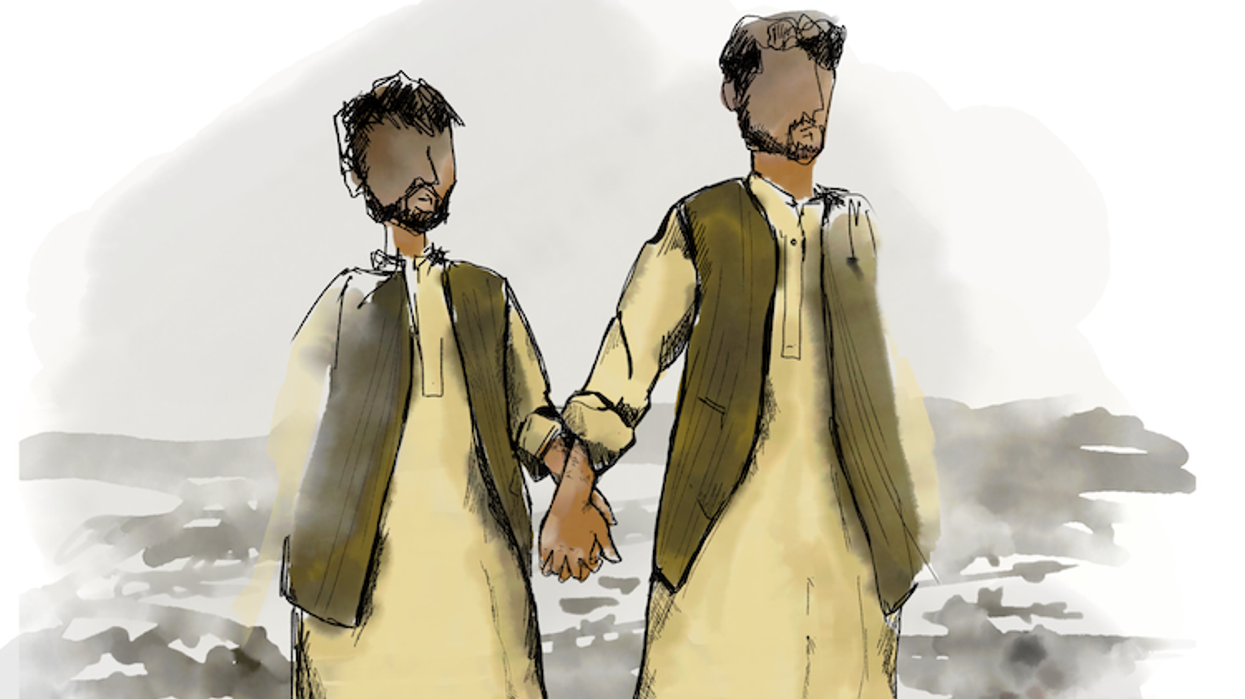For three weeks after the Taliban took Kabul, "Ramiz," an Afghan gay man, lay low. Finally, he had no choice: He had to pick up his salary. He made it through the first checkpoint without incident. At the second checkpoint, his luck ran out.
Armed Taliban officials shouted anti-gay slurs, hit Ramiz, and bundled him into a car. (Ramiz's name and others used here are pseudonyms, to ensure their safety.) They took him to another location, where four men raped him. Eventually, they released him with a threat. "Any time we want to find you, we will. And we will do whatever we want with you," they said.
As Afghanistan grapples with a mounting humanitarian emergency, intensified anti-LGBTQ+ violence is one of a host of epic challenges facing the country.
Famine tops the list with half the population facing acute hunger. Launching its largest funding appeal in history, the UN is scrambling to provide assistance.
To ensure that it reaches everyone, donors must also address human rights.
Danger, close at hand for LGBTQ+ Afghans, limits mobility and may obstruct access to aid. OutRight Action International and Human Rights Watch interviewed 60 LGBTQ+ Afghans since the Taliban takeover. Many were in hiding.
Ali was hiding in an abandoned factory, sneaking out early each morning to buy food with the little money he had. He was anonymous threats by text message and had learned that his homophobic father, who was close to a senior Taliban official, was using his connections to hunt him down.
Ria, a 39-year-old asexual entrepreneur who has long contended with rumors that she is a lesbian, said that after the Taliban's return, armed men ransacked her businesses. Now she hides in a rented room with no door leading to the street. Najib, a transgender woman, told us she had not left her home for two months since Taliban members beat her at a checkpoint, threatening to stone her to death when she went out to buy bread.
Senior Taliban officials have made clear they do not tolerate sexual and gender diversity. Local Taliban commanders and supporters have a green light to brutalize LGBTQ+ people.
Many believe their only option is to flee Afghanistan. But leaving is challenging for all Afghans and especially risky for gender-nonconforming people: It involves passing through multiple checkpoints and often paying bribes to acquire a passport or visa. The rare LGBTQ+ people who succeed in obtaining travel documents can most easily reach locations such as Pakistan or Iran, which criminalize same-sex relations and offer scant safety.
As hard as it is to engage with the Taliban on the human rights of LGBTQ+ people, the majority will remain in Afghanistan. The international community must find ways to support them.
Aid agencies and the donors that fund them need to work along multiple tracks to ensure that humanitarian aid reaches those who need it. LGBTQ+ people are not the only Afghans in hiding: Women's rights activists, journalists, and those perceived to have supported the US occupation also face limited mobility. There must be safe channels for LGBTQ+ people and others in danger who cannot reach points of aid distribution -- as a result of sexual orientation or gender identity as well as other risk factors -- to access assistance wherever they are.
For LGBTQ+ Afghans, fear of discrimination will also impede access to aid. Donors should direct support to organizations working in Afghanistan that explicitly commit to gender-sensitive programming, nondiscrimination, and inclusion of LGBTQ+ beneficiaries. The UN World Food Programme does so, but several major humanitarian organizations do not. If frontline aid workers are perceived as a potential threat, LGBTQ+ people will stay away.
To ensure sustainable access to aid and livelihoods, donors will need to continually press the Taliban on ending violence against all Afghans-including LGBTQ+ people. Afghanistan's leaders crave international legitimacy. UN officials who engage with the Taliban will need to convince them that sexual assault at checkpoints and other violent attacks are beyond the pale, regardless of the victim's gender identity or sexual orientation.
It's been said that LGBTQ+ people are the proverbial canary in the coal mine. That is, when LGBTQ+ rights or lives are threatened, more widespread, destabilizing violence lies in wait. The reverse is equally true: When LGBTQ+ people are left out of life-saving programming, their exclusion portends ongoing instability.
The Afghan crisis is manifold; LGBTQ+ people will not always be centered in decision-making. But their unique vulnerabilities must be on the table if assistance is to achieve its aims.
Neela Ghoshal is the senior director of law, policy, and research at OutRight Action International. Lester Feder is a senior fellow for emergency research at OutRight Action International.




































































Charlie Kirk DID say stoning gay people was the 'perfect law' — and these other heinous quotes